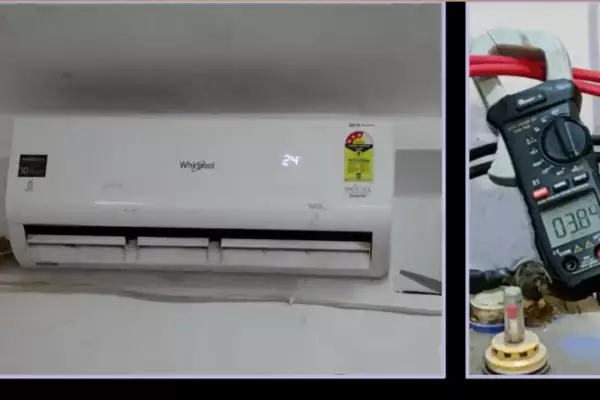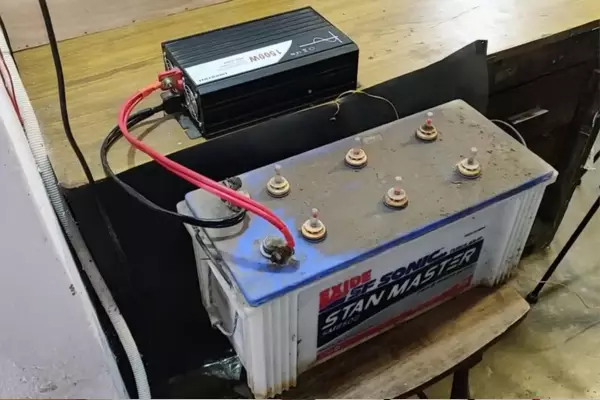Air conditioners are a crucial appliance for maintaining comfort, especially during warmer months. The role of voltage in their operation is paramount, with specific units designed to run on certain voltages.
The answer to whether a 220v air conditioner can run on 110v is a straight no. The difference in voltage supply does not align with the designed functionality of the unit, which could lead to performance issues and safety risks.
Digging deeper into this topic provides insights into the complexities of electrical systems. Each appliance is constructed to accommodate a particular voltage, making this a critical aspect to consider when setting up any electrical unit.
Contents
220V Air Conditioners
What Are 220V AC Units?
Air conditioners designed to operate at a higher voltage, specifically 220V, are commonly referred to as 220V AC units. These appliances are quite typical in regions where 220V is the standard electrical supply, including many European countries and certain parts of Asia. This higher voltage results in these air conditioners being robust and efficient, typically used in larger spaces where more cooling power is needed.
Functioning and Power Requirements
Air conditioners are designed to draw a specific amount of power, which is directly linked to their voltage rating. A 220V AC unit is made to function optimally at this voltage level, ensuring that all its components work in harmony to provide the desired cooling effect.
The electrical components of these AC units – the compressor, fan motor, and control circuits – all operate under the 220V input. This is why it’s important to supply them with the right voltage. An incorrect voltage supply can disrupt their functioning, causing the appliance to run inefficiently and potentially shortening its lifespan. This could also translate to higher energy bills due to the AC unit working harder than it should.

110V Electrical Systems
Basics of 110V Power Supply
The 110V power supply is standard in North American homes and businesses. This lower voltage supply is common for smaller appliances and light fixtures. Power outlets in these regions are typically configured to deliver 110V, designed to accommodate appliances compatible with this voltage.
The 110V power supply is considered safer in residential settings as it reduces the risk of severe electrical shocks. However, it might be insufficient for high-powered appliances such as large air conditioners, which require more voltage to function optimally.
Common Appliances on 110V
Small kitchen appliances like coffee makers, blenders, and toaster ovens are common examples of devices running on 110V. Light fixtures, television sets, and small electronic devices are also typically designed for this voltage. These appliances have components and circuitry designed to function efficiently under this power supply, ensuring their optimal performance and longevity.
Can 220V AC Run on 110V?
Difference in Power Supply: 220V vs 110V
The primary difference between a 220V and a 110V power supply lies in the amount of electrical power they can deliver. A 220V supply can provide more power, which is essential for high-energy appliances like large air conditioners.
Applying a 110V supply to a 220V air conditioner results in a voltage shortfall. This means the air conditioner will receive less power than it’s designed for, which can cause it to underperform. This could translate to reduced cooling capacity and the unit struggling to maintain the desired temperature, leading to an uncomfortable environment.
Potential Consequences and Risks
If you try to run a 220V air conditioner on a 110V power supply, several potential issues could arise. These include:
- Decreased Cooling Capacity: The AC unit might not cool the space as effectively as it should. This can make the environment less comfortable, especially during hot weather.
- Increased Strain on the Unit: The air conditioner could experience increased strain as it tries to work harder to compensate for the insufficient power supply. This could result in premature wear and tear, potentially leading to breakdowns and expensive repairs.
- Electrical Hazards: Using an incompatible power supply can lead to electrical problems such as circuit overloads, which pose a risk of fire and electrical shocks.
Overall, the risk and potential consequences far outweigh the perceived benefit of using a 220V AC on a 110V supply. This is why it’s generally discouraged by professionals.

Adapting 220V AC for 110V
Use of Step-down Transformers
One potential solution for using a 220V air conditioner on a 110V supply is a step-down transformer. This device is designed to convert high voltage to low voltage, allowing the AC unit to function.
However, it’s important to note that this is not a long-term or efficient solution. Step-down transformers can be expensive, bulky, and consume a considerable amount of energy, which could increase your electricity bill.
Moreover, using a transformer does not change the fact that the air conditioner is designed for a different voltage supply. There’s still a risk of the AC unit underperforming or experiencing premature wear and tear.
Pros and Cons of Voltage Conversion
Voltage conversion through a transformer seems like a convenient solution on the surface, but it has its pros and cons.
Pros:
- Allows you to use your existing 220V air conditioner on a 110V supply.
- Provides a quick fix if you’ve moved from a country with a 220V supply to one with a 110V supply.
Cons:
- Increased energy consumption due to the transformer’s operation.
- Potential damage to the air conditioner due to the mismatched voltage.
- Safety risks associated with improper installation or use of the transformer.
- Cost of purchasing and installing the transformer.
When considering these factors, it becomes clear that voltage conversion is generally not the most practical or efficient solution.
Alternatives to Converting Voltage
Purchasing 110V Air Conditioners
If your home is set up for a 110V power supply, the best course of action is to purchase an air conditioner that’s designed for this voltage. These units will work optimally with your home’s power supply, ensuring efficient performance and energy usage.
Buying a 110V air conditioner may seem like an extra cost, especially if you already own a 220V unit. However, in the long run, it’s more cost-effective and safer than attempting to convert the voltage.
Dual Voltage Air Conditioners
Another alternative is to opt for a dual voltage air conditioner. These units are designed to work with either a 220V or 110V power supply, offering flexibility for various situations.
While these units may come at a higher price point, their versatility makes them a valuable investment, especially if you frequently move between regions with different standard voltages.

Precautions when Dealing with Voltage
Safety Measures in Voltage Adaptation
Dealing with electricity always requires caution. If you’re considering adapting your voltage supply or using a transformer, it’s important to follow safety protocols.
- Never attempt to do the wiring yourself unless you’re a qualified electrician.
- Always turn off the power supply before doing any work on electrical appliances or outlets.
- Use a multimeter to confirm that the power is off before you start working.
- Always follow the manufacturer’s instructions when installing appliances.
Professional Help for Voltage Issues
When in doubt, always consult a professional. An experienced, licensed electrician can provide valuable advice based on your specific situation. They can also safely handle any necessary electrical work, ensuring the safe and efficient operation of your air conditioner.
Frequently Asked Questions
Why Can’t a 220V AC Run on 110V?
A 220V AC can’t run on 110V because the voltage is too low to meet the power requirements of the air conditioner. This mismatch can lead to underperformance and potential safety hazards.
Can Voltage Conversion Harm My Air Conditioner?
Yes, voltage conversion can potentially harm your air conditioner. It can cause strain on the unit, leading to decreased efficiency and premature failure.
Are There Air Conditioners That Can Run on Both 110V and 220V?
Yes, there are dual voltage air conditioners available in the market. These units are designed to operate on both 110V and 220V power supplies.
Conclusion
The voltage requirements of an air conditioner are not to be taken lightly. Trying to power a 220V unit with a 110V supply can lead to numerous issues, from decreased performance to potential safety risks.
Instead of attempting to convert the voltage, alternatives such as purchasing an AC unit suited to your voltage supply or opting for a dual voltage model offer more viable solutions. These options ensure optimal AC performance while preserving safety and efficiency.
Lastly, always seek professional advice when dealing with voltage discrepancies. A licensed electrician can provide valuable insights and services, guiding you toward the best course of action for your specific situation. This ensures not only comfort but also the safe and efficient operation of your air conditioning unit.
